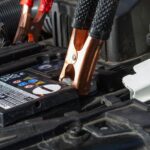There has been a positive response from various electronics goods producers and waste electrical and electronic equipment compliance schemes to the findings of the consultation by the government on altering the WEEE disposal regime in the UK, Collect and Recycle (http://www.collectandrecycle.com) reports.
The proposals did see some opposition, however, amid questions about whether the government truly had a strong mandate to implement changes to the UK’s current system for WEEE recycling.
The Department for Business, Innovation and Skills (BIS) published a summary of consultation responses on Friday 23rd August, indicating a high level of support among electrical waste recycling stakeholders for the government’s two favoured options for change.
The consultation, which was launched partly due to producer concerns about compliance costs, as well as so that the requirements of the recast WEEE Directive could be incorporated into UK law, proposed four options for how the future WEEE system could look.
The first option was no change to the present system, the second one involved the introduction of a ‘National Producer Compliance Scheme’ as an alternative to current compliance schemes competing with each other and option 3 was to set targets for compliance schemes alongside a ‘compliance fee’ for those that did not meet them. This latter option was instead of the trading between collection schemes of WEEE evidence data. Option 4 was to have collection sites matched to compliance schemes.
BIS analysed the responses, pinpointing options 3 and 4 as those winning the most favour, with options 1 and 2 receiving much less support.
Representatives of several prominent producers and producer compliance schemes, the Joint Trade Association (JTA), backed the consultation’s findings, stating that they gave the government a “powerful mandate for change”.
JTA chairman Richard Hughes stated that producers supported option 3 and 4 “because they remove the ‘must buy’ market for WEEE evidence which is a cause of excessive costs in the current system, and because both options introduce a clear audit trail for WEEE treatment.”
Chief executive at lamp compliance scheme Recolight, Nigel Harvey, also welcomed the findings, commenting that “As members of the Joint Trade Association, we are delighted by the very strong support for the changes to the household WEEE system, to make it fairer for all stakeholders.”
However, Barry Van Danzig, the compliance scheme Electrolink’s chief executive, backed the current system and challenged the JTA’s assertion that the results provided a strong mandate for change, saying: “There are 5,000 obligated companies in the UK of which only 110 – 2% – responded.”
Van Danzig argued that the changes requested by BIS and the JTA were actually likely to increase the cost of recycling, given local authorities’ awareness that they would be subsidising it – which they were unlikely to want to continue doing.
Nonetheless, the government is set to give its formal response to the consultation in September, as will be documented with great interest here at IT recyclers Collect and Recycle (http://www.collectandrecycle.com).

